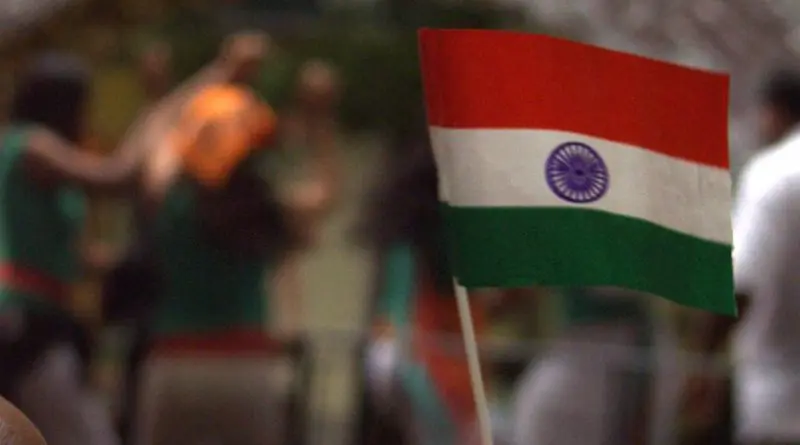India: BJP Looks To Retain Power As Polls Open This Week
By BenarNews
By Jaishree Balasubramanian
Indian Prime Minister Narendra Modi’s ruling alliance is widely expected to win the 2019 general election that begins Thursday, but only by a slim majority this time around, according to opinion polls and analysts.
Starting April 11 and ending May 19, polls for 543 parliamentary seats in the world’s most populous democracy will be held in seven phases. Ninety-one of those seats will be contested when phase one unfolds on Thursday in 18 states and two federally administered territories.
The alliance led by Modi’s Hindu nationalist Bharatiya Janata Party (BJP) will be vying for control of the Lok Sabha, the lower house of parliament, against the opposition Congress party, led by Rahul Gandhi, as well as several other regional and national parties. Results are expected to be announced on May 23.
“There is no visible wave as was so evident in the 2014 polls,” Smita Gupta, a political analyst, told BenarNews, referring to a nationwide euphoria that drove BJP to a landslide win in the last general election.
In northern Uttar Pradesh (UP) state, which accounts for 80 parliamentary seats, local issues such as produce prices and cows destroying crops are coming to the surface, Gupta said.
“But Prime Minister Modi remains a major factor,” she said.
Political parties will battle for parliamentary seats in UP during all seven stages of the election.
“It is a tough contest in every single seat, even the BJP there admits it,” Gupta said. in 2014, BJP won 71 seats in Uttar Pradesh, which represents the largest number of seats.
A pre-poll survey conducted by the Center for the Study of Developing Societies indicated that BJP might garner 222 to 232 seats compared with a total of 283 in the 2014 polls. The BJP and its alliance together is expected to only get a slim majority, it said, because of a more “united opposition” in key states.
“[The] national mood appears to be to give the BJP and the National Democratic Alliance a second chance,” the survey said.
Kashmir
Smita Gupta, a senior fellow at the think-tank Hindu Centre for Politics and Public Policy, said the BJP’s popularity soared after New Delhi demolished an alleged militant training camp in Pakistani territory with an airstrike.
The airstrike followed a suicide bombing that killed 40 Indian troops and was claimed by the Pakistan-based militant group Jaish-e-Muhammad (JeM) in the Indian side of the disputed Kashmir region. It then led to aerial engagements between India and Pakistan, which both claimed in February that they had shot down each other’s fighter jets over each other’s territory.
Modi, who is seeking re-election, drummed up support based on a surge of patriotism after he ordered fighter jets to bomb the suspected JeM camp in Balakot, Pakistan, analysts said.
But India’s nationalistic fervor has dissipated after the two nuclear-armed neighbors pulled back from military confrontation, analysts said.
“Balakot is not so on top of the minds of people now, maybe it is in some places,” Gupta said. “It was there immediately after it happened. At that time, it was strong.”
BJP’s election manifesto has listed national security, produce prices, Kashmir and illegal immigration as core issues to woo India’s nearly 900 million voters.
The party promised to scrap the decades-old special rights accorded to people living in Jammu and Kashmir, saying those rights affect the state’s integration with the rest of the country.
On Tuesday, the last official day of campaigning, Modi urged first-time voters to dedicate their first ballot to the Indian fighter pilots who carried out the airstrike in Balakot and also the troops who were killed in the suicide bombing in Indian Kashmir’s Pulwama district.
“I want to ask my first-time voters, can your first vote be dedicated to the soldiers who conducted the Balakot air strikes?” he said. “Can your first vote be in the name of the martyrs who lost their lives in Pulwama?”
Residents in Indian-controlled Kashmir, a violence-hit region demarcated by a de facto boundary known as Line of Control (LoC), are expected to vote to elect six parliamentarians over five phases of polls.
Separatists and militants have asked people to boycott the elections. However, people have defied the orders, attending election rallies in the state in large numbers.
The northeast
Another key electoral contest will be in the northeastern states, which had been a bastion for the Congress party for many years, but where the BJP made significant inroads in the 2014 polls.
Twenty-five parliamentary seats across eight states in the region are up for grabs, with Assam – the biggest state that shares a border with Bangladesh – accounting for 14 seats.
But BJP faces stiff competition from various parties in this election after it tried to get support for a Citizenship Amendment Bill, which aims to give citizenship to persecuted Hindus, Sikhs, Parsis and Buddhists from neighboring countries, observers said.
“Locals of the region are under fear that if the bill is passed, it will make way for thousands of Hindu Bangladeshis to settle in the region, leading to them outnumbering the indigenous population,” Professor Monirul Hussain, a political analyst based in Guwahati, Assam, told BenarNews.
“So, this issue may act as a dampener in the party’s election prospects in the region,” he said.
Mohammad Amin Pirzada in Srinagar and Jhumur Deb in Guwahati, India, contributed to this report.

